Does Social Work Have its own Practice Framework?
Welcome back to my blog, where I cover some key highlights from the latest episode of the Social Work Café.
Episode 05 is all about social work practice frameworks and how these can promote professional identity.
I chatted with the amazing Sue Wilkins, who has pretty much done every social work job you can imagine and is currently working as a school social worker (we will have her back in the café to talk about that another time).
I first met Sue at a social work conference in 2014, where she presented some of the initial findings from her research.
Funnily enough, I was rummaging through my archives several months ago and unexpectedly came across a folder containing conference notes.
#NerdAlert that I still keep conference notes.
Lo and behold, I discover a document titled 2014 Sue Wilkins—Conference Abstract!
The title of her presentation was Social Work Practice Frameworks and Professional Identity.
With a title like that, it is no surprise that I was like a mosquito attracted to a light.
Here are some of the notes I typed underneath the abstract (yes, I hand wrote and then typed up the notes):
Looks at practice framework construction and how it impacts social work identity; practice framework is a crucial part of identity.
People are often aware of the term "practice framework," but it is not clearly defined in social work; lack of conversation about practice framework amongst social work peers.
There is a need for a clearer practice framework model.
Not surprising, her presentation had quite an impact on my own teaching and research at that time.
Apologies to any students who got utterly sick about reading, writing, and talking about practice frameworks during their studies... just kidding:
Having said that, during this episode, I came to realise that I had missed a crucial point from Sue’s conference presentation back in 2014.
Sue shares with us how we need to reframe our language from the generic term "practice framework" to the more specific "social work practice framework" in order to better represent our profession.
Sue tells us that a social work practice framework is made up of certain components, and once assembled, our professional identity emerges.
With this in mind, a social work practice framework becomes a useful device for explaining and representing social work to others.
I love that so much!!!
The other main highlight from our conversation relates to the components that Sue describes.
For years, I have been making use of great material on practice frameworks written by Chenoweth and McAuliffe.
In the final chapter of their introductory text, they use the term "elements" to describe what makes up a practice framework—self, knowledge, values, and skills.
While I love these elements, I think Sue’s focus on components goes even deeper by tying together all of the threads that we study in social work.
In other words, think of every subject you studied as a component of your social work practice framework that balances the individual (use of self) with the collective (professional contexts).
We ended the conversation with Sue’s definition of social work, which really packs a punch:
Social work is a profession that gives strong attention to the social influences affecting individuals, families, relationships, groups, and communities that are facing challenging problem situations, and we help them to work with this to understand the problem they are facing and what might help to support them.
I was particularly struck by the terminology around social influences and how social workers have a keen interest in that area, or, as Sue says, it is "the core of where we look professionally."
I’m grateful for the chance to speak with Sue and take away new ideas to further develop my own teaching and the conversations I have with students and practitioners!
I would love to know what you thought of the episode, what you are taking away from the conversation, and what you think about Sue’s definition of social work.
See you soon in the café!
Dr. B

